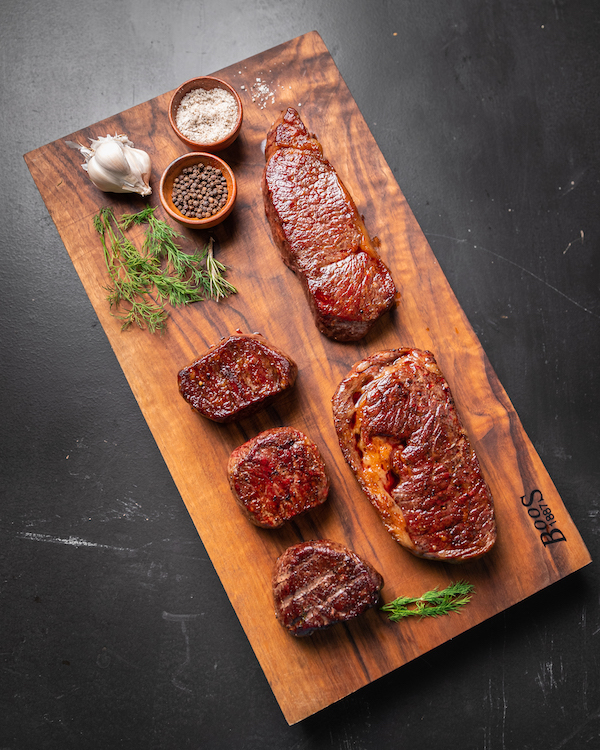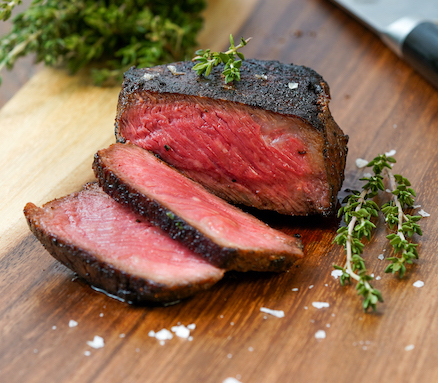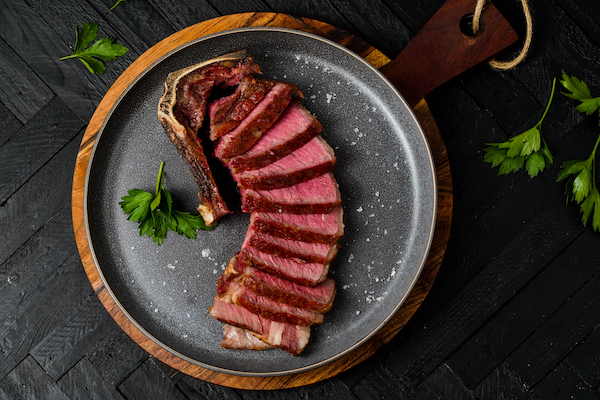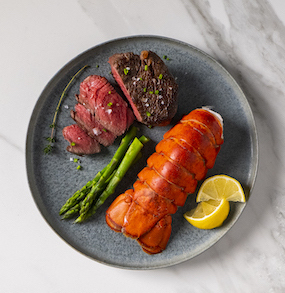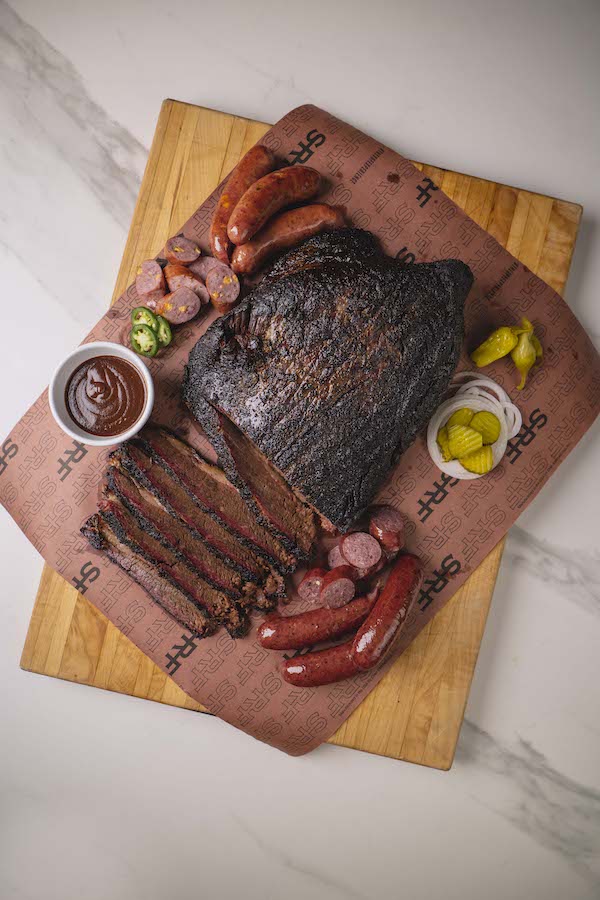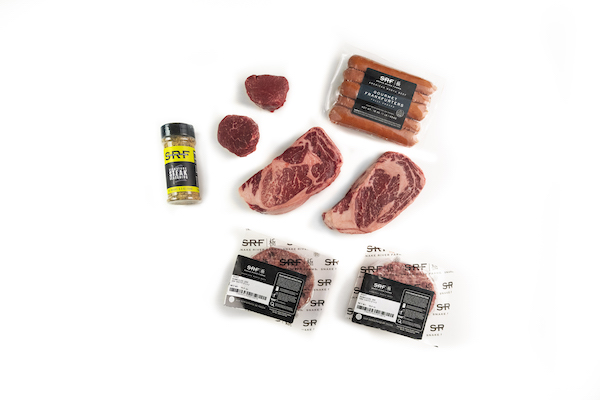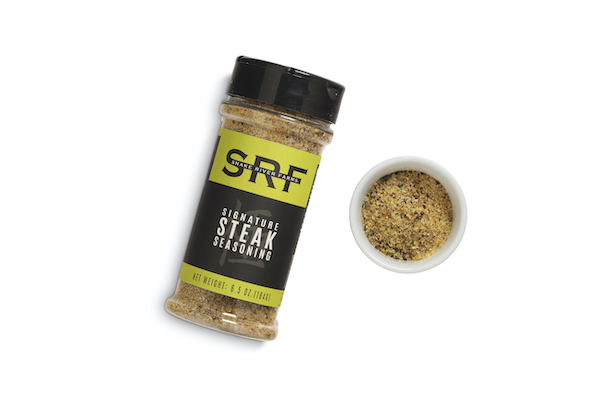Fresh vs Frozen Meat
When it comes to food, especially meat, fresh product is always considered superior to frozen, right? Surprisingly, this is not the case when meat is properly flash frozen. A flash freeze performed at the peak, immediate freshness of the meat will successfully capture and preserve the product without any sacrifice in quality.
A quick and proper freeze is what allows Snake River Farms to deliver the perfection of American Wagyu Beef right to your doorstep, and our experts are here to further explain some of the differences between fresh and frozen meat, especially when it comes to beef.
WHAT IS FRESH BEEF?
The beef you purchase from your local butcher to cook immediately is fresh, not frozen. Fresh beef should have a bright red color and be firm and dry to the touch.
Fresh beef should be cooked immediately or shortly after purchase to ensure its quality and that it does not begin growing harmful bacteria. A mild, meaty smell to the beef is normal; however, if the meat smells particularly strong or pungent, you should bypass it.

What is Frozen Beef?
Beef is generally considered frozen when it reaches a consistent core temperature of 0 degrees Fahrenheit or below. It is imperative that you store frozen meat properly, ideally in a vacuum-sealed package like the kind Snake River Farms uses.
Flash freezing is an advanced technique that utilizes cryogenic temperatures to almost instantly freeze our products in much shorter time frames than traditional freezing. The meat is subjected to air and oxygen for less time prevents damage to cell membranes of the beef. This ensures the integrity of the meat’s taste, texture, quality, and nutritional components.
Another nice part about receiving our wagyu steak in vacuum-sealed packages is that it makes the thawing process simple, safe, and completely preserves the quality of the cut.
Fresh vs Frozen Beef: Which is Better?
If beef is flash frozen at the moment of peak freshness, the quality of the meat, including the taste, texture, and color, is indistinguishable from that of fresh beef.
In fact, flash frozen beef can deliver an even better end result compared to its fresh counterpart.
Think about it: A fresh cut of beef should be cooked immediately, because it only stands to degrade in quality (unless properly dry-aged) as time passes. To battle this, fresh beef is often chilled or refrigerated to extend its shelf life, such as at the grocery store. Meanwhile, beef that is immediately frozen and vacuum sealed will be perfectly preserved until it comes time to thaw and cook.
Does Freezing Meat Affect Taste?
If the meat is flash frozen at the moment of immediate freshness, taste will not be affected upon proper thawing and cooking. This fact is backed by the meat scientists at Texas A & M University, home of one of the foremost experts on beef. In a discussion with Jeff Savell, Vice Chancellor and Dean, Agriculture and Life Sciences and University Distinguished Professor, Meat Science, his studies have shown that rapidly freezing beef and slowly thawing results in negligable quality differences between fresh and frozen products.
Of course, freezing beef or other cuts of meat improperly does present issues that can negatively affect taste. After all, not everyone has access to a flash-freezer.
When beef is frozen is in a traditional freezer, like at home, excess moisture and exposure to air will lead to the formation of ice crystals atop the meat’s surface. These ice crystals will pull moisture from your frozen steak, for example, drying it out and harming the overall taste and texture.
If you ever buy steak that does not come in vacuum-sealed package, then you should double wrap your meat to help prevent ice crystals from forming. If properly done, you should not lose any of the quality or flavor of your steak. Consider wrapping your beef in freezer paper followed by foil, and then storing in an airtight container for added protection.

How Long Can You Store Beef in the Freezer?
Beef can be safely stored in the freezer for anywhere from six months to up to a year. However, the longer you keep it frozen, or if it’s been improperly wrapped for storage, the more chance there is for the quality of the beef to be negatively affected.
Fresh beef should be kept in the refrigerator no more than three to five days after purchase. Just remember to keep the beef in its vacuum-sealed package or an airtight container because exposing the beef to air and oxygen promotes bacterial growth and can also affect the cut of steak’s color, texture, and flavor.
Ideally, you want to cook a fresh cut of beef as close to when you purchase it as you can.
How to Know if Frozen Meat is Bad
While frozen meat can last a long time, it is not good forever. So, how do you know if your meat has gone bad?
The most common issue is freezer burn which happens when air contacts the surface of the meat directly. This can cause crystals to form, as well as a change in color. The meat is still safe to eat, but the quality is highly diminished.
Changes in texture, ripped packaging, and a funny smell are other telltale signs of frozen meat gone bad.
Be sure to label your meat when you place it in the freezer. Include on your label the purchase date, the date it went into the freezer, a best-by date, and any other pertinent information. If you find yourself freezing meat often, store it so that those placed first in the freezer will be the first out when you’re ready to cook.
American Wagyu Beef Preserved to Perfection
We know that if meat is frozen quickly and with the proper care, its quality, taste, texture, and nutritional value should not be negatively affected. All our American Wagyu beef products (with the exception of Dry Aged) are flash frozen at their peak freshness to ensure the highest quality cut of beef.
When it comes to the debate of fresh vs frozen meat, it comes down to the latest techniques that make the difference indistinguishable. By ordering from Snake River Farms or properly sealing and storing your beef in the freezer, you can still enjoy a delicious steak dinner without sacrificing quality or flavor.

